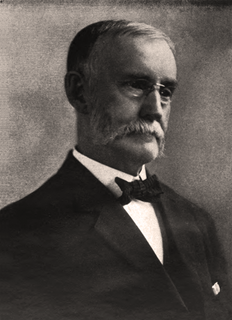A Quote by Samuel Johnson
All envy is proportionate to desire; we are uneasy at the attainments of another, according as we think our own happiness would be advanced by the addition of that which he withholds from us.
Related Quotes
Envy, my children, follows pride; whoever is envious is proud. See, envy comes to us from Hell; the devils having sinned through pride, sinned also through envy, envying our glory, our happiness. Why do we envy the happiness and the goods of others? Because we are proud; we should like to be the sole possessors of talents, riches, of the esteem and love of all the world! We hate our equals, because they are our equals; our inferiors, from the fear that they may equal us; our superiors, because they are above us.
As he loves us, he would have us love others. We say men are not worthy of such friendships. True, they are not. Neither are we worthy of Christ's wondrous love for us. But Christ loves us-not according to our worthiness-but according to the riches of his own loving heart! So should it be with our giving of friendship-not as the person deserves-but after the measure of our own character.
All the wants which disturb human life, which make us uneasy to ourselves, quarrelsome with others, and unthankful to God, which weary us in vain labors and foolish anxieties, which carry us from project to project, from place to place in a poor pursuit of we don't know what, are the wants which neither God, nor nature, nor reason hath subjected us to, but are solely infused into us by pride, envy, ambition, and covetousness.
Love rejoices in good wherever it finds it; envy is pained by good, and the sight of the happiness of others hurts the eyes and the heart of the envious man. Love wishes to give; envy would rather receive. Love creates; envy destroys. Love builds up; envy pulls down. Love helps those in need, comforts the afflicted, and strives to turn all that is evil into good; envy would turn the little happiness to be found in this world into evil, sorrow, and pain.
We are spirit children of a loving Heavenly Father who placed us in mortality to see if we would choose - freely choose - to keep His commandments and come unto His Beloved Son. They do not compel us. They cannot, for that would interfere with the plan of happiness. And so there is in us a God-given desire to be responsible for our own choices.
All of us, I suspect, imagine that a world exists from which we alone have been excluded; all of us have our noses pressed against the glass. But if we contemplate our own lives, not the phantom life on the other side, we might find things in them to envy-a family that’s intact; a job we like; excellent health (the thing we take for granted and on which all happiness depends). Good fortune is there, however sporadic, however modest, however difficult to achieve. The trick is to recognize it.
The musical emotion springs precisely from the fact that at each moment the composer withholds or adds more or less than the listener anticipates on the basis of a pattern that he thinks he can guess, but that he is incapable of wholly divining. If the composer withholds more than we anticipate, we experience a delicious falling sensation; we feel we have been torn from a stable point on the musical ladder and thrust into the void. When the composer withholds less, the opposite occurs: he forces us to perform gymnastic exercises more skillful than our own.
The word "jealousy" is often used as if it were synonymous with envy; but I think the distinction worth preserving. Jealousy is predominantly concerned with the fear of loss of something one possesses, envy with the wish to own something another possesses. Othello suffers from the fear that he has lost Desdemona's love. Iago suffers from envy of the position held by Cassio, to which he feels entitled.





































